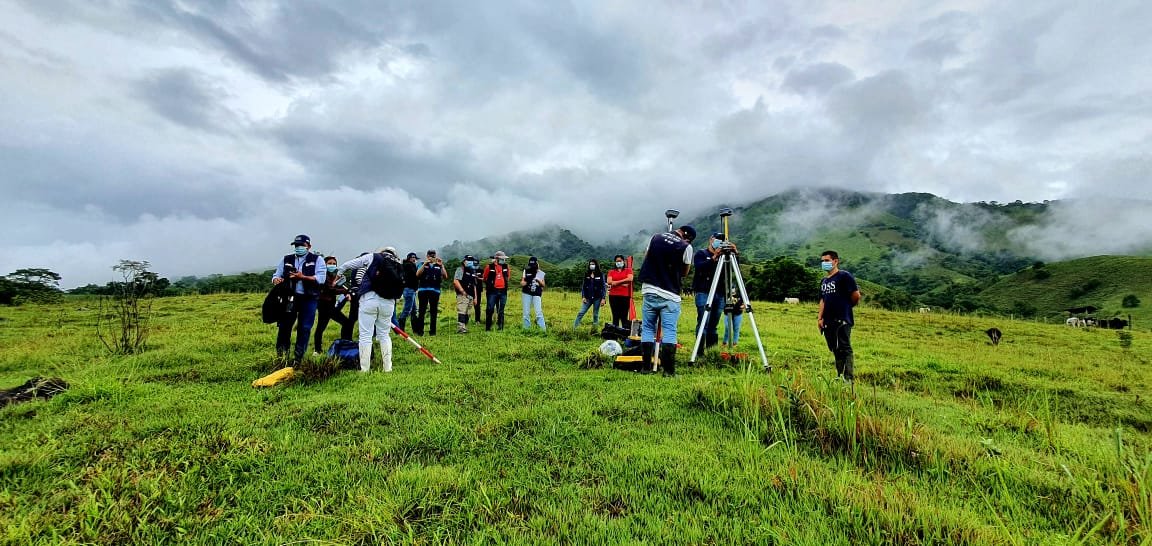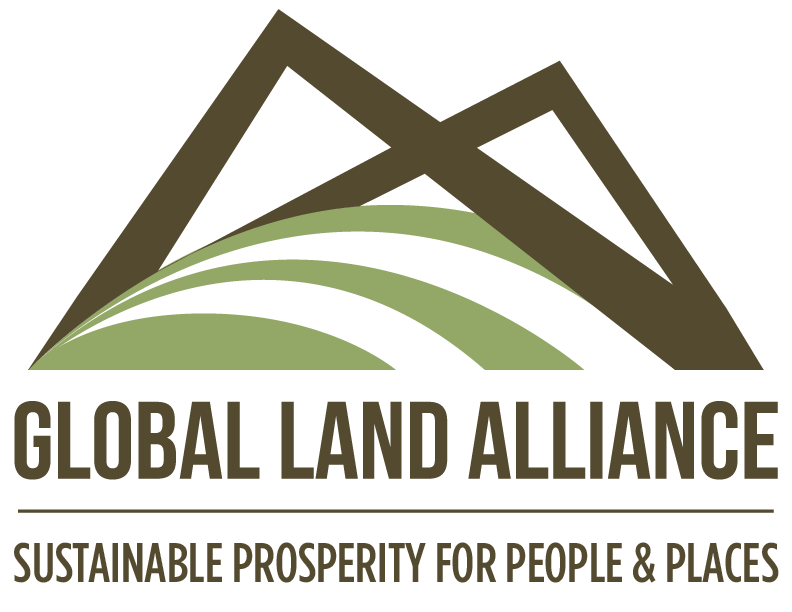
Land Administration
What is Land Administration?
In the early 1990’s the United Nations Economic Commission for Europe defined ‘land administration’ as:
“the process of determining, recording and disseminating information about ownership, value and use of land and its associated resources. These processes include the determination of land rights and other attributes, surveying and describing these, their detailed documentation, and the provision of relevant information for supporting land markets”.
Twenty-five years and billions of US dollars in funded investments later, land administration has evolved to be considered a foundational element supporting both broad economic development and individual formality and security. At the same time, the range of topics included in land administration has grown to encompass:
The institutional arrangements and legal frameworks for land ownership and transactions;
Land tenure relationships and the definition and documentation of the status of land tenure and land rights;
The collection of geospatial data and management of land information and records;
Cadaster, land registration, land valuation and property taxation data and services;
Land policy, management of public lands and land use planning; and
The protection of land rights and claims in the face of external pressure.
Community Participation and Inclusion desk
A vital lesson of international development is the importance of community participation and inclusion throughout the project life cycle. Land and resource management projects have the potential to significantly impact communities but the efforts to include and consult with communities is sometimes limited. Global Land Alliance has dedicated Community Participation and Inclusion Desk within our Land Administration Program led by Laura Bermudez. For any inquiries please contact here for more information. Learn more about the desk’s guiding principles here.
Global Land Alliance in Land Administration
The Global Land Alliance’s core team members have not only been directly involved throughout this evolution and growth but are widely considered global practice leaders in land administration. Global Land Alliance’s Land Administration Program builds upon this extensive and long-term global experience to provide, through our staff, associated consultants and global Alliance Partners, innovative and progressive technical assistance and advisory services in the conceptualization, design, technical and operational oversight of land administration and land tenure projects and land policy advice.
The focus of our land administration program is grounded on the fundamental lessons learned over the years including; need for political will and local champions, accessible and proactive institutions, responsive legal frameworks, active and continual community participation, importance of social acceptance and legitimacy, use of innovative but appropriate technology, operational efficiency, mainstreaming of social and environmental aspects, capacity building and knowledge sharing and the monitoring and evaluation of social and economic impacts.
The Land Administration program supports monitoring and evaluation studies, including: the development of an audit procedure and rules for the verification of land tenure clarification for the Government of the Dominican Republic as part of their Sustainable Agroforestry Development project; land tenure aspects of impact evaluations in Burkina Faso (with Mathematica), Botswana (with Cadasta), Morocco (with Mathematica), Mongolia (with Cloudburst Group), and in Haiti (with NORC); and a social impact analysis of a land tenure formalization and land administration modernization in Sri Lanka.
Global Land Alliance is currently or has recently supported clients in Afghanistan, Brazil, Burkina Faso, Morocco, Mongolia, Mozambique, Paraguay, Zambia, Botswana, Angola, Gabon, Ecuador, Haiti, Colombia, Dominican Republic, Sri Lanka and Brazil.
Gender Equity and Inclusion
When women face barriers to accessing, using or controlling land and other resources around the world, it not only puts them on an unequal footing in life, but it also restricts wider positive social, economic and environmental outcomes. Securing women’s land and property rights can increase agricultural productivity, incentivize the adoption of climate-resilient natural resource management and increase household spending on health and education. In many countries, legal and policy frameworks do not ensure equal rights of men and women when it comes to owning property, inheriting assets from parents or spouses, or the valuation of non-monetary contributions. Even when the legal and policy frameworks are in place, there are often important cultural barriers that make it difficult for women to exercise their rights.
Embedded across our work, GLA upholds guiding principles of community engagement to promote gender inclusive, gender equitable and transparent governance practices. This approach, led by GLA’s Community Participation and Inclusion Desk and presented at the 2019 World Bank Land Conference, emphasizes the importance of understanding community participation as a right and opportunity to improve the design, implementation, monitoring and evaluation of projects.
Spotlight on Recent Land Administration Projects:
Dominican Republic: Multipurpose Cadaster
Under the coordination of the Treasury Ministry, and working with multiple Dominican government land agencies, GLA and REDDOM completed a rapid institutional, technical, legal and fiscal assessment of the use of the property cadaster and prepared the conceptual framework for an eventual government ‘multipurpose cadaster’ project. GLA addressed opportunities in expanding formalization of urban and rural land rights, property valuation and tax revenue generation and accessibility and sharing of land and environmental information through national geospatial infrastructure..
Dominican Republic: Social Risk of Impoverishment and Displacement
Global Land Alliance, with its Dominican partner Fundacion REDDOM and expert technical assistance from Colombia Rural of Bogota and VIDENZA Consultores of Peru, recently completed a study for the Government of the Dominican Republic’s Unidad Técnica Ejecutora de Proyectos Agroforestales (UTEPDA) and the Inter-American Development Bank (IDB) to assess the potential social risk of impoverishment and physical and economic displacement as a consequence of proactive formalization of land tenure in 7 rural watersheds of the Dominican Republic. GLA first designed the methodology; including field surveys, statistical analysis, focus groups, in-depth interviews and analysis of the legal framework and formalization processes followed by implementation of the methodology in the region of Hondo Valle. The findings from Hondo Valle were analyzed and the methodology was adjusted for application in the remaining six watersheds and a series of recommendations were made to UTEPDA and the IDB to address the specific social risks related to proactive formalization of land tenure identified in the study. See final presentation in Spanish.
Botswana: Review of LAPCAS Project
The Land Administration Procedure, Capacity and Systems (LAPCAS) Program which began in 2009 with a goal of improving land administration in Botswana is entering its final year of implementation. In support of our partner, Cadasta Organization, Global Land Alliance provided expert technical assistance reviewing issues of institutional capacity, programmatic planning, monitoring and evaluation and communications. Meeting with government officials and various stakeholders in Botswana the Cadasta/Global Land Alliance team reviewed the implementation of the LAPCAS Project with the objective of providing the Government of Botswana and Lantmäteriet of Sweden with both an assessment of the implementation of the LAPCAS and recommendations for continued support in improving land administration in the country.
Haiti: Rural Land Tenure Security Project
Global Land Alliance, supported by the Haiti office of its partner INSUCO, recently completed a comprehensive study for the Government of Haiti’s Interministerial Committee for Land Management (CIAT) and the Interamerican Development Bank (IDB) to examine the relationship between land tenure security and land use in two rural areas of Haiti Camp-Perrin and Saint Suzanne. The study used extensive parcel-based land tenure and land use data collected during the implementation of CIAT’s Rural Land Tenure Security Project (PSFMR) combined with post-project aerial photography, household surveys and statistical analysis to determine how/if secure land tenure affects farmers' agricultural decisions in rural Haiti and to present recommendations on post-formalization activities to improve agricultural use of rural land.


















